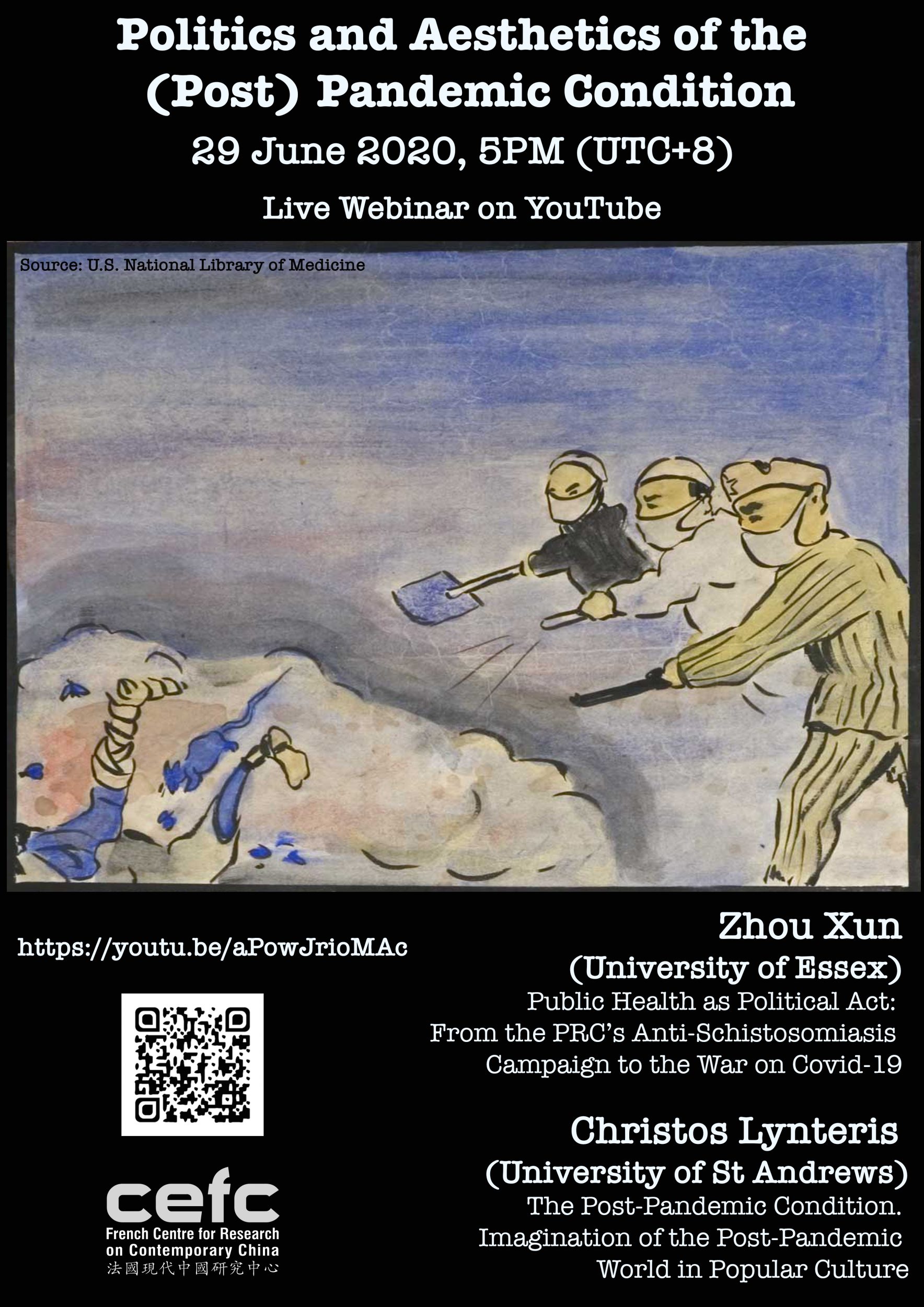CEFC Taipei Webinar – Replay
“Politics and Aesthetics of the (Post) Pandemic Condition”
With Zhou Xun (University of Essex), Christos Lynteris (University of St Andrews)
29 June 2020, 5PM (Taipei Time, UTC+8)
Speakers:
Zhou Xun (University of Essex): “Public Health as Political Act: From the PRC’s Anti-Schistosomiasis Campaign to the War on Covid-19”
Christos Lynteris (University of St Andrews): “The Post-Pandemic Condition. Imagination of the Post-Pandemic World in Popular Culture”
Dr Zhou Xun is Reader in History at the University of Essex. Dr Zhou is among a growing number of historians who are pioneering the history of the PRC using new oral & archival evidence. Based on thousands of archival documents and hundreds of interviews she collected, her documentary and oral history works on the Great Famine in China (2012 & 2014) are powerful accounts which have helped to reshape our understanding of modern Chinese history. Dr Zhou is the author of the forthcoming book The People’s Health: Health Intervention and Delivery in Mao’s China, 1949-1983 (McGill-Queen University, August 2020). Capitalising on previously unseen archival sources from across China AND extensive oral interviews with the participants at the expert and grassroots level, this book sets out to develop a nuanced understanding of the Chinese approach to health. It explores the processes through which the PRC’s health system was conceived and the political context in which they were, and could be evaluated. Since January 2020, Dr Zhou has been regularly interviewed by major news media such as the New York Times and BBC to comment on the Covid-19 crisis in China.
Dr Christos Lynteris is a medical anthropologist, Senior Lecturer in Social Anthropology at the University of St Andrews. His research focuses on the anthropological and historical examination of infectious disease epidemics, animal to human infection (zoonosis), medical visual culture, epidemiological epistemology, colonial medicine, global health, and epidemics as events posing an existential risk to humanity. Previously, Dr Lynteris’ research examined: epidemic crises in modern China and their impact on society and governance; SARS and the “floating population” in the PRC; the formation of socialist medicine in China and its synergy and antagonism with Confucian ethics; the social ecology of plague on the Chinese-Russian frontier; marmot-hunting practices amongst Mongols and Buryats and their impact on the zoonotic transmission of plague; the role of ethnography in the formation of scientific knowledge about plague. He recently published Human Extinction and the Pandemic Imaginary (Routledge, 2019) and Sulphuric Utopias: A History of Maritime Fumigation (MIT Press, 2020 with Lukas Engelmann)


